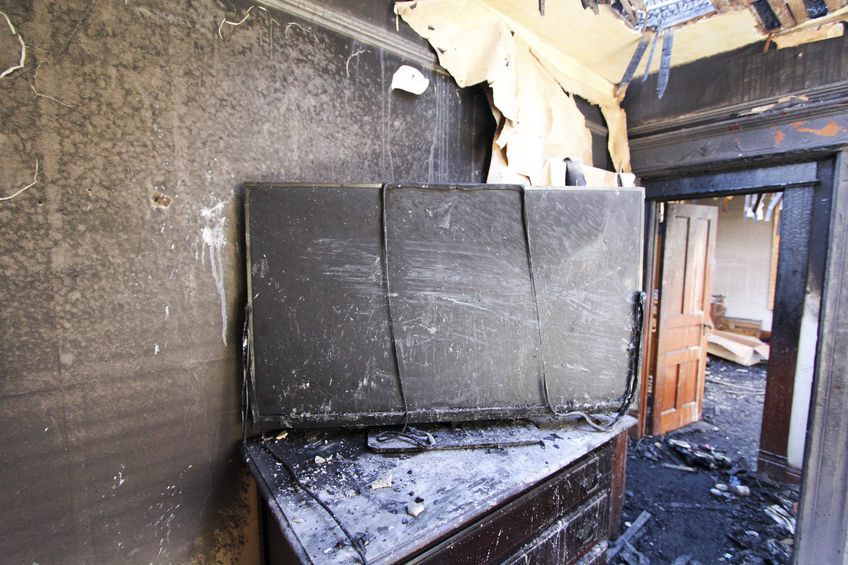
Experiencing a fire in your home or business is a traumatic event, but navigating the aftermath can be equally challenging. Filing an insurance claim for fire damage is a critical step to rebuilding and recovering, but it’s not always straightforward. Mistakes during the claims process can lead to delays, reduced settlements, or even denials. Knowing what pitfalls to avoid can help you secure the compensation you need and deserve.
1. Delaying the Notification to Your Insurance Company
One of the most common mistakes is waiting too long to inform your insurance company about the fire. Insurance policies typically require prompt notification after a loss, and failure to comply can lead to delays or denials. As soon as you’re safe, contact your insurer to initiate the claims process.
2. Failing to Document the Damage Properly
Thorough documentation is crucial when filing a fire damage claim. Before any cleanup or repairs, take extensive photographs and videos of the damage. Document every affected area, including structural damage, soot-covered surfaces, and damaged personal items. Be as detailed as possible, as these visuals will serve as evidence during your claim.
Additionally, consider creating an inventory list of damaged possessions with descriptions and estimated values. This resource provides guidance on documenting home damage.
3. Making Permanent Repairs Too Soon
Another common mistake is making permanent repairs before an insurance adjuster has inspected the damage. While temporary repairs to prevent further damage are necessary and often encouraged, significant repairs should wait until you receive approval. Otherwise, you risk compromising your claim or limiting the amount of compensation you’re eligible to receive.
4. Not Keeping Detailed Records
From the moment you contact your insurance company, maintain detailed records of all interactions. Keep notes of phone calls, emails, and meetings, including the names of representatives you spoke with and the topics discussed. This documentation can prove valuable if disputes arise during the claims process.
Additionally, save receipts for any expenses related to temporary housing, emergency repairs, and other costs incurred as a result of the fire. For more tips on managing post-disaster finances, refer to this guide.
5. Accepting the First Settlement Offer Without Question
Insurance companies are motivated to settle claims quickly, which can result in lower initial offers. While it may be tempting to accept the first settlement, especially during a stressful time, it’s often not in your best interest. Review the offer carefully and, if necessary, seek a second opinion from a public adjuster who can provide an unbiased assessment of your claim’s true value.
6. Overlooking the Fine Print in Your Policy
Understanding your insurance policy’s terms and coverage is essential to avoid unexpected denials or reduced payouts. Policies often contain specific language regarding what is covered, what is excluded, and how claims are processed. If you’re unsure about any aspect of your coverage, consult with an expert, such as a public adjuster, to clarify and advocate on your behalf.
7. Underestimating the Value of a Public Adjuster
Attempting to navigate the claims process alone can be overwhelming and leave you at a disadvantage when negotiating with your insurer. Hiring a public adjuster can significantly improve your chances of a fair settlement. Public adjusters work on your behalf to assess damages, prepare your claim, and negotiate with the insurance company. This expertise can be especially valuable when dealing with complex or disputed claims.
8. Neglecting to Mitigate Further Damage
Your insurance policy likely requires you to take steps to prevent additional damage after the fire. This may include boarding up windows, covering damaged roofs, or hiring professionals to remove water used during firefighting efforts. Failing to mitigate further damage could impact your claim, as insurers may view it as negligence.
9. Providing Inconsistent Information
Accuracy and consistency are key when dealing with insurance adjusters and representatives. Providing conflicting information can raise red flags and lead to delays or disputes. Be honest, precise, and consistent in all your statements and documentation.
10. Not Seeking Help When Needed
Filing a fire damage claim can be a complex and emotionally taxing process. Don’t hesitate to seek professional help when needed. A public adjuster, like those at Acuity Adjusters, can guide you through the process, ensure your claim is properly documented, and advocate for a fair settlement on your behalf.
Acuity Adjusters, Serving California
At Acuity Adjusters, we specialize in helping clients throughout California navigate the complex insurance claims process, ensuring they receive the compensation they’re entitled to. If you’re dealing with the aftermath of fire damage, our experienced public adjusters are here to help you every step of the way.
From documenting losses and negotiating with your insurer to providing expert advice, we’re committed to serving your best interests. Reach out to Acuity Adjusters today to learn how we can support you during this challenging time.
